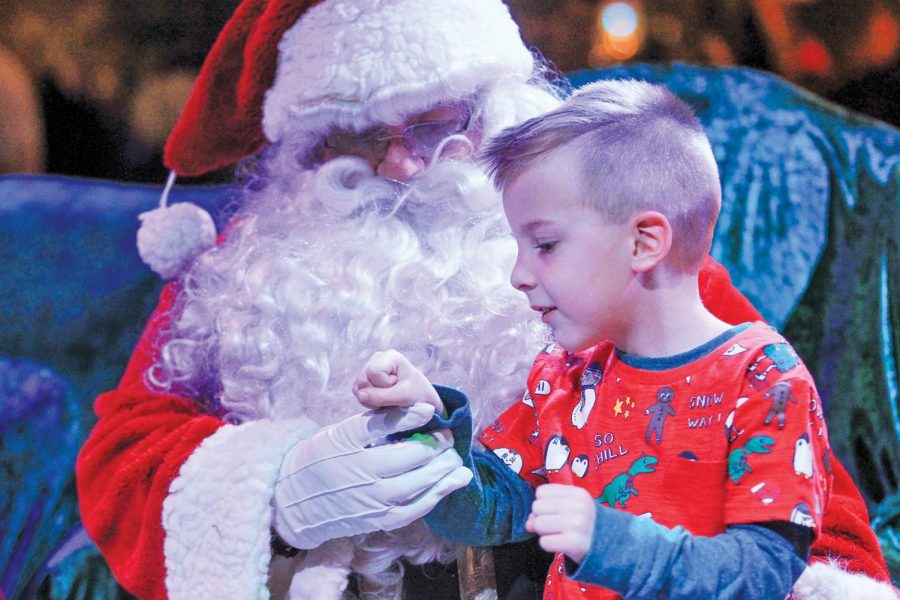Faceoff: Santa Claus provides sense of joy, magic for children
There are many legends about the origins of Santa Claus.
Childhood is a finite experience. You are born into it, but most transition out by 18 (except for Peter Pan and a select few men with overbearing mothers). It is a time flush with whimsy, joy, magic and mystery.
Children can see to the widest reaches of imagination and create delight from the vaguest whispers of entertainment. Funnily enough, most children can’t seem to wait to get out of it, as there seem to be much grander things lurking past the threshold (I can assure them, there’s not). However, perhaps one of the greatest phenomenons of childhood is the legendary character of Santa Claus.
Mr. Claus’ origins are nearly ubiquitous in culture, from St. Nicholas (a Greek saint) to Father Christmas (an English traditional figure), and he is celebrated across the world. You know the story: he comes on Christmas Eve to bring presents to the good boys and girls of the world. He is pulled in a sleigh by nine reindeer (Dasher, Dancer, Prancer, Vixen, Comet, Cupid, Donner, Blizten and Rudolph) and after shimmying down your chimney to leave you presents, Santa Claus then eats milk and cookies that are left out for him.
To the sane, rational adult, the idea of this omnipotent, impossibly fast, incredibly agile home invader is less heart-warming and more terrifying. But to children, Santa Claus represents a moral enforcer in a context that they can understand using incentives that matter to them, as well as offering an ultimatum of sorts for misbehaving kids. But perhaps most importantly, Santa Claus is often a child’s last holdout in their belief in magic, something which I argue is most important to maintain.
In children’s eyes, the idea of Santa Claus gives them a (albeit a shallow and one-dimensional) way to understand the consequences of their actions. Here is this all-knowing being who has the power to literally reward you for good behavior, or punish you for bad behavior.
Outside the arena of parenting, Santa Claus is emblematic of Christmastime, an icon of the season. But within the arena of parenting, he becomes a tool for helping your child comprehend that good behavior comes with rewards, and bad behavior does not. Sure, Santa Claus might teach this lesson in the most consumerist way possible, but it lays the groundwork for a deeper understanding later.
I think most of us remember the hushed classroom conversations of third and fourth grade, where each child attempts to figure out who does and who doesn’t still believe. In a way, it’s a lovely sentiment that most kids don’t want to ruin it for their peers. And it’s that sentiment that urges me to defend the Santa Claus belief.
Children are supposed to be allowed to believe in magic. There’s so much in this world that unfairly confronts many children too young, and robs them of that privilege they so deserve. Any way that you can introduce that joy, that magic, should be embraced and protected. Long live Santa Claus.







